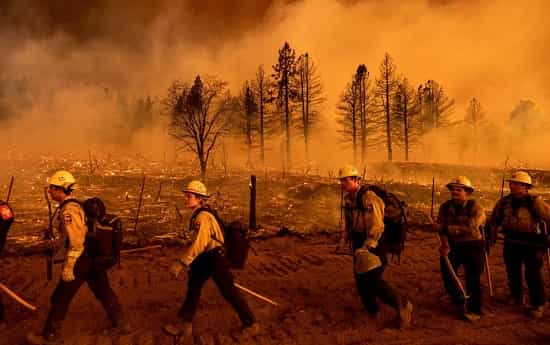
The Biden Administration Introduces Strategy Aimed At Reducing Wildfires
The Biden administration on Tuesday announced that it was undertaking a 10-year strategy aimed at reducing harm caused by wildfires, using some funds from the bipartisan infrastructure bill.
Through the initiative, the administration said it will use intentional “prescribed” fires to help maintain forest health and invest in helping communities adapt to fires. It will also include investments in addressing post-fire risks, recovery and reforestation.
The Forest Service, which is overseen by the Department of Agriculture, hopes to treat up to an additional 20 million acres of national forests and grasslands and support treatment of 30 million more acres of lands owned by other federal, state, tribal and private entities.
The Associated Press reported that the plan would be $50 billion, while a press release noted that it the project will involve the use of $3 billion provided by the bipartisan infrastructure law.
“The negative impacts of today’s largest wildfires far outpace the scale of efforts to protect homes, communities and natural resources,” Agriculture Secretary Tom Vilsack said in a statement.
“Our experts expect the trend will only worsen with the effects of a changing climate, so working together toward common goals across boundaries and jurisdictions is essential to the future of these landscapes and the people who live there,” he added.
The announcement comes as the administration is eager to tout the investments provided by the bipartisan bill — especially as large parts of its climate and social spending agenda remain stalled in Congress.
In recent weeks, it has highlighted other ways the money is being used, like creating clean energy jobs and cleaning up abandoned mines.
The new wildfire effort is expected to focus on the highest risk areas, such as the Southwest and Pacific Northwest.
A strategy document behind the latest initiative said it hopes to also develop a plan for maintenance following the 10-year period.
It attributed what it described as a current wildfire “crisis” to a combination of factors, including climate change, a buildup of burnable material like grasses and trees and expanded development in fire-prone areas.
The announcement comes just weeks after a firestorm burned down hundreds of homes in the Boulder, Colo., area.

